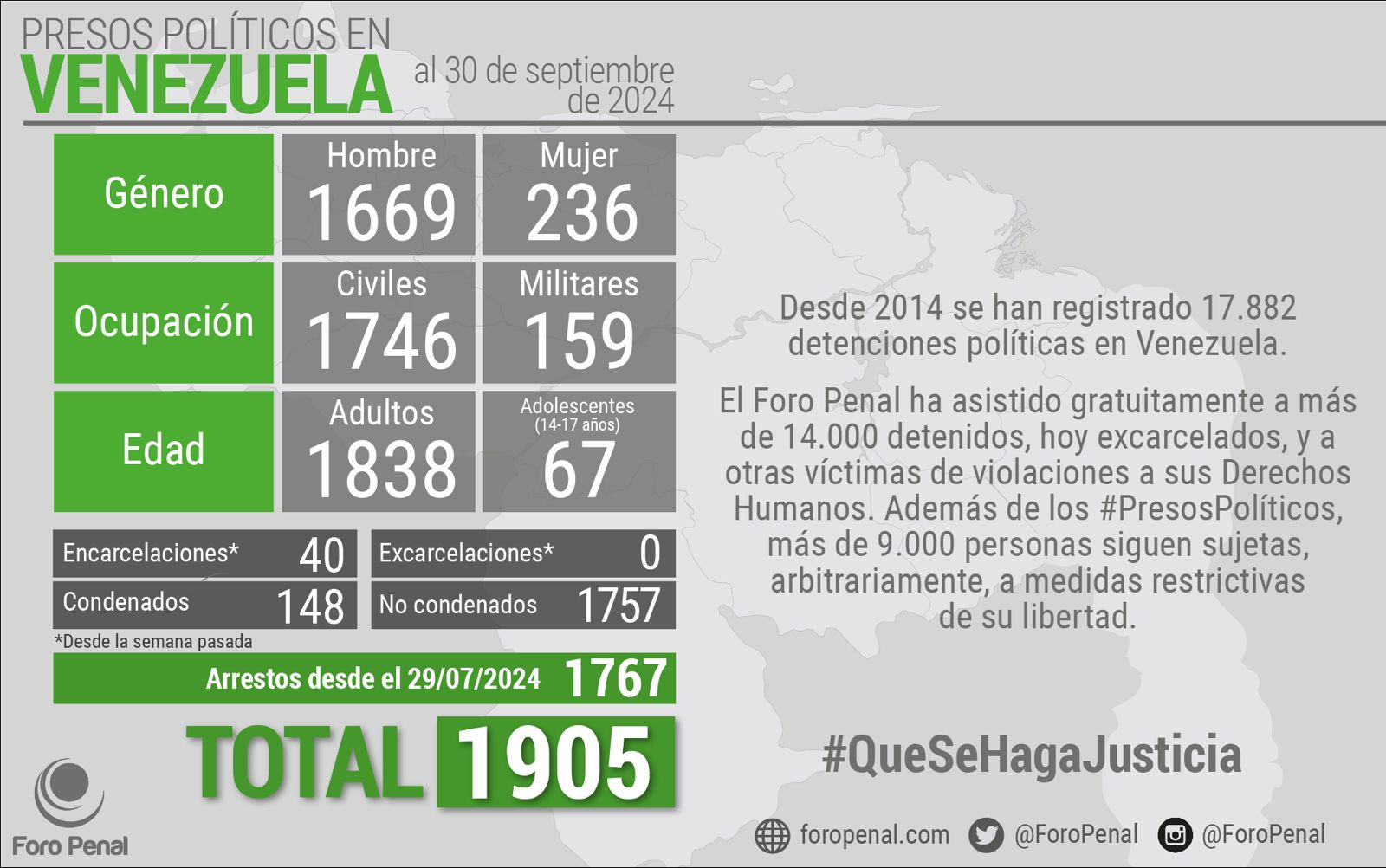Number of political prisoners in Venezuela exceeds those of Cuba and Nicaragua

After the presidential elections of July 28 in Venezuela, the number of political prisoners has experienced an alarming increase. According to data from the NGO Foro Penal, The government of Nicolás Maduro has sixfold increased the number of detainees for political reasons in the two months following the electoral event, going from 301 to 1,905 people deprived of liberty.
The Spanish newspaper The Country He highlighted that this increase places the Caribbean nation above other countries in the region with authoritarian regimes, such as Cuba and Nicaragua.
According to Criminal ForumIn Cuba there are around 1,100 political prisoners. While in Nicaragua the number is significantly lower, with approximately 50 people detained. The current figure in Venezuela is “the highest in 25 years of the Bolivarian revolution and, possibly, in several decades”he added The Country.

Photo: Penal Forum
Number of political prisoners in Venezuela increased after elections
The wave of arrests began on July 29, a day after the National Electoral Council (CNE) issued the first results bulletin of the presidential elections. Which sparked protests in various parts of the country. The non-governmental organization reported that, since then, 1,767 arrests have been recorded linked to demonstrations and political activities.
Of the 1,905 political prisoners, 1,669 are men and 236 women. Besides, the majority of those detained are civilianswith a total of 1,746 people in this category. While 159 are members of the National Armed Forces (FAN). Among those detained are also 67 adolescents, aged between 14 and 17 years.
Among the most notable cases of this new wave of arrests is that of the mayor of Maracaibo, Rafael Ramírez, a member of the opposition Primero Justicia party.
Four people linked to the Vente Venezuela party, led by María Corina Machado, were also arrested. Including two members of his security team and two regional coordinators in the state of Anzoátegui.
Independent journalism needs the support of its readers to continue and ensure that the uncomfortable news they don’t want you to read remains within your reach. Today, with your support, we will continue working hard for censorship-free journalism!
